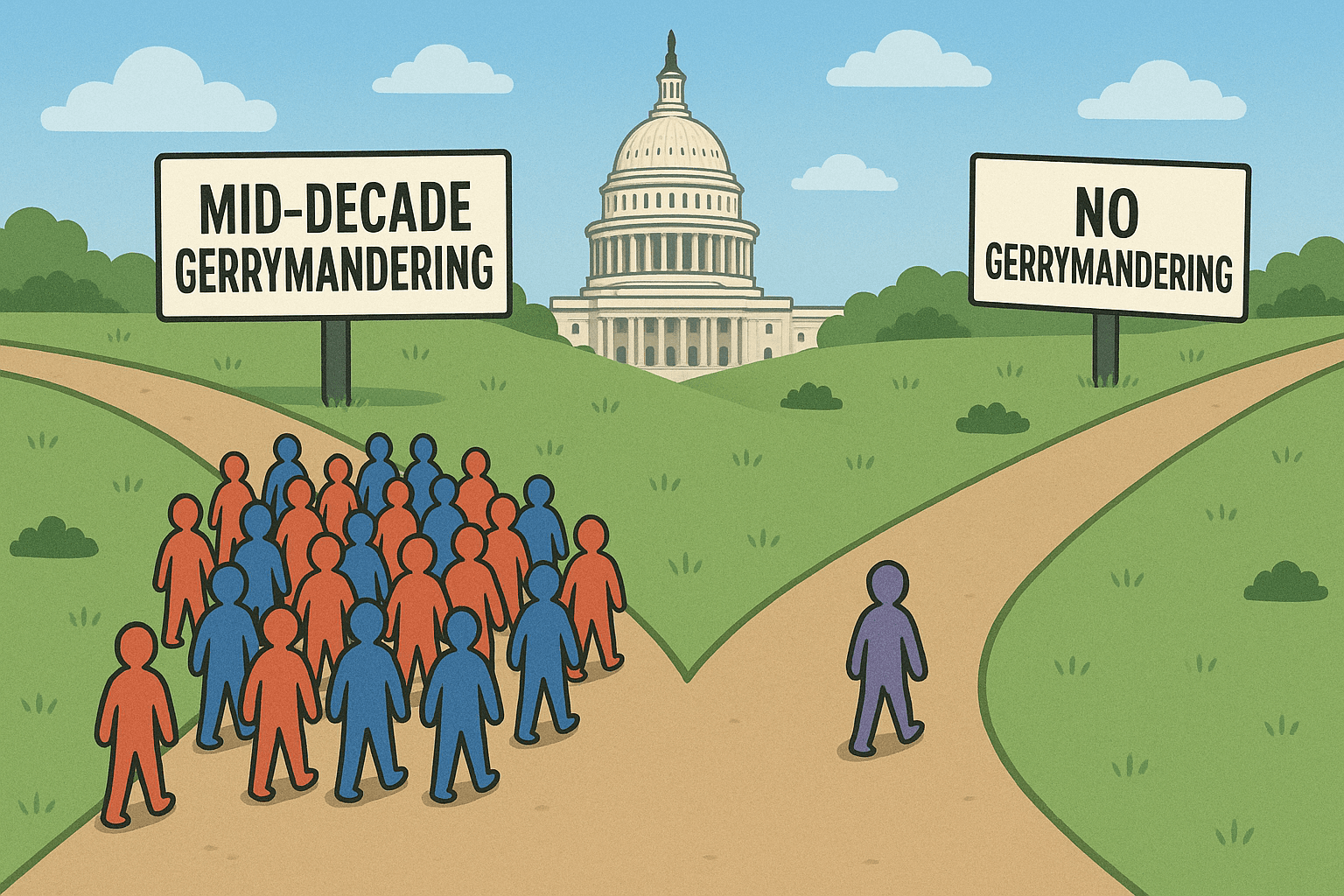Why the Voter Rebellion is Alive and Being Led ... by South Dakota!

While no longer operative in the presidential election, the voter rebellion witnessed during the primaries is alive and well. South Dakota is now the epicenter, where Amendment V for Nonpartisan Elections gives voters the chance to reclaim their elections from the political establishment and send a message to Washington.
To many around the country, South Dakota would seem an unlikely place to be leading the voter rebellion. But the state best known for Mount Rushmore has a famous and historic independent streak: in 1898 it was the first state to pass the voter initiative process, helping to begin the Progressive Movement where women finally won the right to vote, and voters passed a series of reforms aimed at taking away power from the party establishment, including the initiative, referendum, recall, and nonpartisan local elections.
This year, South Dakota voters have an opportunity to remake the state's partisan primary system. Like many states, South Dakota currently has closed partisan primaries that nominate candidates loyal to the Republican and Democratic parties. Amendment V for Nonpartisan Elections, on the November ballot, would replace that with a nonpartisan election system that allows all voters to participate and elect public servants rather than party servants.
Currently, over 115,000 South Dakotans are registered independent. However, these voters have virtually no voice as they can only vote in Democratic Party primaries. In “deep red” South Dakota, it is like being invited over to Thanksgiving dinner only to find out you are sitting at the kids table, as almost all elections are effectively decided in the closed Republican Primary. Nonpartisan elections would put all voters and candidates on a level playing field, allowing all voters to vote for the person, not the party.
At the high water mark of the Progressive Movement in 1934, Nebraska passed nonpartisan elections for its state legislature which allows all voters to participate and removes party affiliation from the ballot. As a result, the Nebraska legislature is the only state legislative body that is not organized by either the Republican or Democratic Party, and both Democrats and Republicans chair legislative committees.
READ MORE: South Dakota Moves A Step Closer to Nonpartisan Elections
California passed nonpartisan elections in 2010 and went from having only a few competitive elections to having the most competitive elections in the country. State legislators in both parties are also forming alliances that were previously impossible under the old partisan primary system.
South Dakota voters are clearly ready to lead the nation by sending a message to Washington, D.C. that “the voters have had enough.” South Dakotans for Nonpartisan Elections submitted over 40,000 signatures in support of Amendment V to place it on the November ballot and the call for reform has been answered by notable Republican, Democratic, and independent leaders and voters across the state.
Of course this effort is being opposed by the South Dakota political establishment. The Governor and many of the most partisan elected officials are rallying to defend their power and keep voters, especially the 115,000 independents, from having a voice. They rightly fear that giving power to the voters would force them to be accountable to the people of South Dakota.
If South Dakota voters are able to overcome the establishment’s opposition, every voter in the state will have a voice. And the national voter rebellion will have scored an important victory against the political establishment, giving hope to tens of millions of American voters and emboldening reformers in states around the country.
Promotions for this article paid for by Yes on V - South Dakotans for Nonpartisan Elections
Photo Credit: vchal / shutterstock.com



